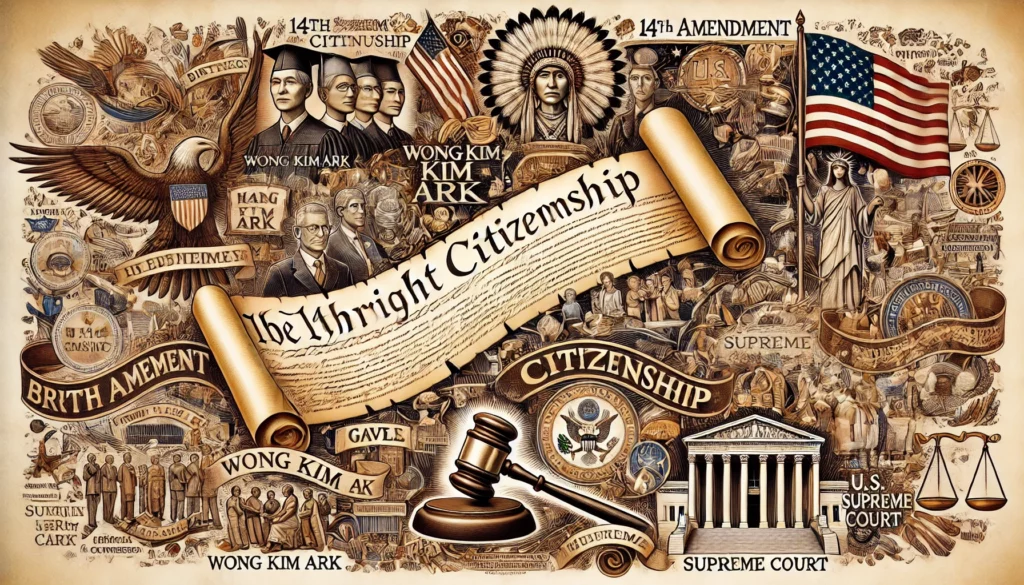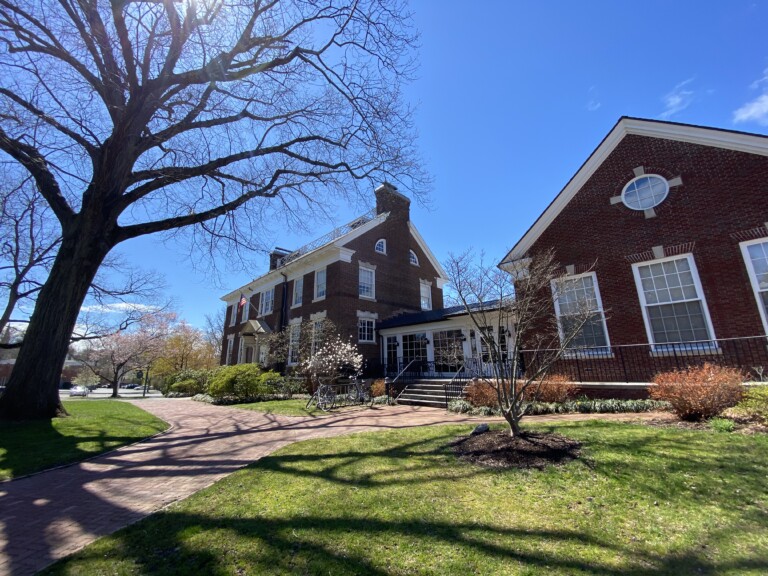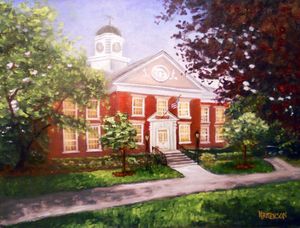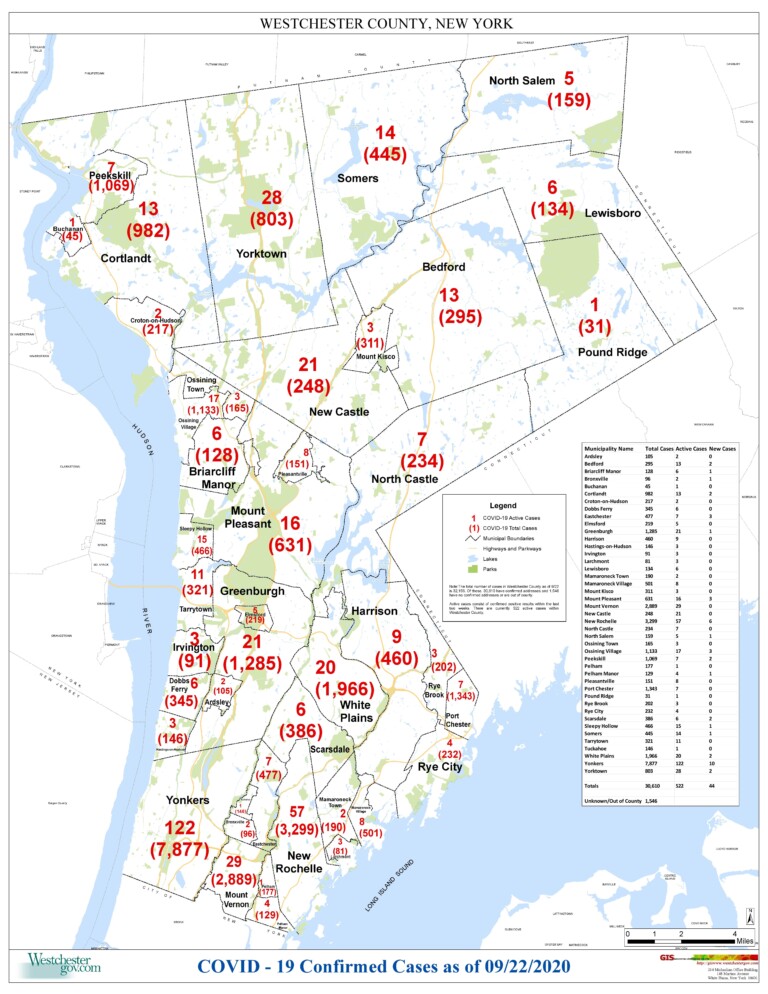Holding Court: Birthright Citizenship – Elks, Arks and Natives

Holding Court is a series by retired Rye City Court Judge Joe Latwin. Latwin retired from the court in December 2022 after thirteen years of service to the City.
What topics do you want addressed by Judge Latwin? Tell us.
By Joe Latwin

There has recently been much talk about birthright citizenship – the granting of citizenship to people born in the U.S. Shall we explore it?
At English Common Law, a 1608 case said “a person’s status was vested at birth and based upon the place of birth.” An 1830 U.S. Supreme Court case followed the Common Law based upon allegiance to the sovereign but created exceptions for children of ambassadors and occupying enemies. In 1844, a New York case followed the Common Law and added, “Natives are all persons born within the jurisdiction of the United States, . . . while an alien is a person born out of the jurisdiction of the United States.” There were issues with this interpretation. What about Native Americans (who were subject to the jurisdiction of their tribes), African slaves, and women (who derived their rights from their husbands).
In 1804, Congress said a married woman’s citizenship was tied to their husband. Widows and children of aliens were permitted conditional citizenship – they had to declare the intent to be citizens.
In 1857, the Supreme Court, in what has frequently been described as its worst decision ever, the Dred Scott case, held that African Americans, whether free or enslaved, could never become citizens and “had no rights which a white man was bound to respect”. This decision was a stimulus for the Civil War. During the Civil War, the Attorney General opined that every person born in the United States was prima facie a citizen subject to proof of disenfranchisement (without reference to race of color).
The Civil War having been successfully concluded, Congress passed the Civil Rights Act of 1866, that declared all person born in the United States and not subject to any foreign power, excluding Indians not taxed, are declared to be citizens. Two years later, in 1868, the 14th Amendment to the Constitution was passed. The purpose of the Amendment was to overrule Dred Scott and ensure citizenship for the recently freed slaves. The 14th Amendment reads “All persons born or naturalized in the United States, and subject to the jurisdiction thereof, are citizens of the United States and of the State wherein they reside.”
The same year, Congress passed the Expatriation Act that allowed voluntary surrender of citizenship rejecting birthright citizenship. Under it, a woman who married an alien was a voluntary expatriate as was a married woman who lived abroad with her alien spouse or if the marriage bestowed the foreign citizenship of the spouse.
In 1884, the Supreme Court found that Elk, a member of an unspecified American Indian tribe that separated himself from his tribe, was not a citizen under the 14th Amendment. Remember that Indian tribes were considered sovereign entities within the territorial U.S. and having the power to enter into treaties with the U.S. Elk was denied the right to vote and sued the Registrar. The court ruled that being born in the territory of the United States (Nebraska Territory) is not sufficient for citizenship; those who wish to claim citizenship by birth must be born subject to the jurisdiction of the United States and. The court held that the children of Native Americans were
no more “born in the United States and subject to the jurisdiction thereof,” within the meaning of the first section of the Fourteenth Amendment, than the children of subjects of any foreign government born within the domain of that government, or the children born within the United States of ambassadors or other public ministers of foreign nations.
Indians were granted U.S. citizenship by Congress half a century later in the Indian Citizenship Act of 1924, which rendered the Elk decision obsolete.
In United States v. Wong Kim Ark in 1898, Ark was born in the United States to parents of Chinese descent, who, at the time of his birth, were subjects of the Emperor of China, but had a permanent domicile and residence in the United States.
The Supreme Court’s decision centered upon the 14th Amendment’s reference to “jurisdiction”, and concluded:
the Fourteenth Amendment affirms the ancient and fundamental rule of citizenship by birth within the territory, in the allegiance and under the protection of the country, including all children here born of resident aliens, with the exceptions or qualifications (as old as the rule itself) of children of foreign sovereigns or their ministers, or born on foreign public ships, or of enemies within and during a hostile occupation of part of our territory, and with the single additional exception of children of members of the Indian tribes owing direct allegiance to their several tribes. The Amendment, in clear words and in manifest intent, includes the children born, within the territory of the United States, of all other persons, of whatever race or color, domiciled within the United States. Every citizen or subject of another country, while domiciled here, is within the allegiance and the protection, and consequently subject to the jurisdiction, of the United States. His allegiance to the United States is direct and immediate, and, although but local and temporary, continuing only so long as he remains within our territory.”
Most recently, in 1982, the Supreme Court, dealt with a case of children who were born outside the U.S. and who had entered the country illegally along with their parents. They sought rights to a public education. This case did not explicitly address the question of babies born in the United States to illegal immigrant parents; it concerned kids born outside the U.S. that entered the country illegally along with their parents. The court did suggest, but did not rule, that resident aliens whose entry was unlawful were, nonetheless, “within the jurisdiction” of the states in which they reside.
Now, the issue of what the phrase “and subject to the jurisdiction thereof” in the 14th Amendment means is being litigated and will certainly end up in the Supreme Court. No matter what the court rules, history suggests the Congress has the power to define the limits of citizenship and may as it has in the past, put conditions on birthright citizenship. Although American Samoa is a U.S. Territory, people born in American Samoa do not have birthright citizenship (unless at least one of their parents was a U.S. citizen at the time of their birth). Instead of being considered citizens, they are classified as non-citizen “nationals” of the United States. People from American Samoa can become citizens after moving to the mainland, but the process is long, requires passing a history test, and costs at least $725, before legal fees, without any guarantee of success.






